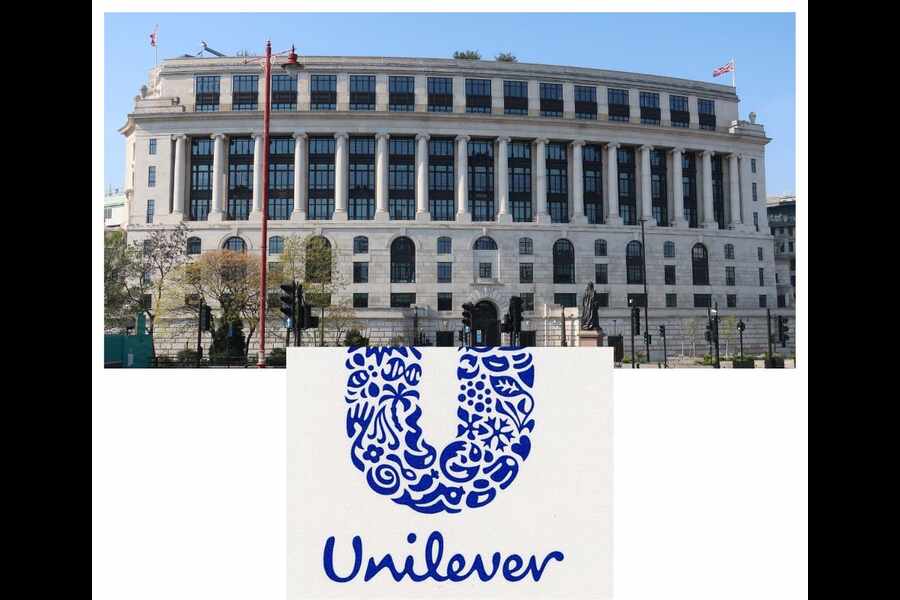Company Overview
Unilever is a British-Dutch multinational consumer goods company founded in 1929 through the merger of Margarine Unie and Lever Brothers. Over the years, it has grown into one of the world’s leading corporations in the food, beverage, cleaning, and personal care industries. With iconic brands such as Dove, Knorr, Lipton, and Magnum, Unilever continues to expand its global footprint through strategic acquisitions and divestitures.
Historical Mergers and Acquisitions
Unilever has strategically expanded its portfolio over the years through numerous acquisitions. Below is a selection of notable deals:
- Brooke Bond (1984) – Acquired for £376 million, strengthening Unilever’s position in the tea market.
- Ben & Jerry’s (2000) – Purchased for $326 million, adding a premium ice cream brand with a strong social mission.
- Alberto-Culver (2010) – Acquired for $3.7 billion, bringing brands like TRESemmé and VO5 into Unilever’s personal care segment.
- Dollar Shave Club (2016) – Bought for $1 billion, marking Unilever’s entry into the subscription-based male grooming market.
- Carver Korea (2017) – Acquired for €2.27 billion, strengthening Unilever’s presence in the Asian skincare market.
- Sundial Brands (2017) – Acquired (undisclosed amount), expanding its multicultural beauty and personal care offerings.
- Horlicks (2018) – Purchased from GlaxoSmithKline for €3.3 billion, enhancing Unilever’s health food and drinks portfolio in India and Asia.
- Paula’s Choice (2021) – Acquired (undisclosed amount), strengthening Unilever’s presence in the digital-led skincare segment.
- Nutrafol (2022) – Majority stake acquired, expanding Unilever’s footprint in the hair wellness category.
- Yasso (2023) – Acquired, adding a premium frozen Greek yogurt brand to its U.S. portfolio.
These acquisitions reflect Unilever’s strategy to target high-growth, premium, and sustainable brands that align with shifting consumer preferences.
Divestitures
Unilever has also streamlined its operations by divesting non-core assets:
- Specialty Chemicals Division (1997) – Sold to Imperial Chemical Industries, enabling Unilever to focus on its consumer goods business.
- Spreads Business (2018) – Sold to private equity firm KKR for €6.8 billion, exiting the margarine and spreads market.
- Tea Business (Ekaterra) (2022) – Sold to CVC Capital Partners Fund VIII, as part of Unilever’s strategy to focus on high-growth areas.
These divestitures align with Unilever’s approach to optimizing its brand portfolio and focusing on segments with stronger long-term growth potential.
Recent Activities (2024/2025)
Unilever has continued to adjust its portfolio in 2024 and 2025, focusing on acquisitions that drive innovation and sustainability while divesting underperforming assets.
- Acquisition of Wild (April 2025) – Unilever acquired Wild, a UK-based refillable personal care brand, marking a strategic move into the sustainable and eco-friendly personal care market.
- Divestment of The Vegetarian Butcher (March 2025) – Unilever announced the sale of The Vegetarian Butcher to Vivera, reflecting a focus on core brands.
- Separation of Ice Cream Division (2024) – Unilever initiated plans to separate its ice cream business, which includes brands like Magnum and Ben & Jerry’s, to streamline operations and focus on higher-margin categories.
Successes and Challenges
- Successful Moves: The acquisition of Wild aligns with Unilever’s sustainability goals, capitalizing on the growing consumer demand for eco-conscious products. The planned separation of the ice cream division allows for more focused management and resource allocation.
- Challenges: The divestment of The Vegetarian Butcher signals difficulties in the plant-based meat market, which has seen slower-than-expected growth. Additionally, the ice cream division’s separation could face execution risks in terms of restructuring and market adaptation.
Strategic Decisions and Reasoning
Unilever’s recent strategic decisions highlight a commitment to innovation, sustainability, and portfolio optimization:
- Portfolio Optimization – Unilever’s focus on acquiring high-growth brands like Wild and divesting non-core assets allows it to maintain a strong market position in essential consumer categories.
- Sustainability Focus – The acquisition of Wild underscores Unilever’s push towards eco-friendly brands, reinforcing its environmental commitments.
- Operational Efficiency – The separation of the ice cream business is designed to simplify Unilever’s corporate structure, allowing for better efficiency and profitability in key categories.
Conclusion
Unilever’s mergers, acquisitions, and divestitures reflect a carefully crafted strategy aimed at driving growth, sustainability, and profitability. By continuously reshaping its portfolio, Unilever remains well-positioned to adapt to evolving consumer trends and maintain its leadership in the global consumer goods industry.

